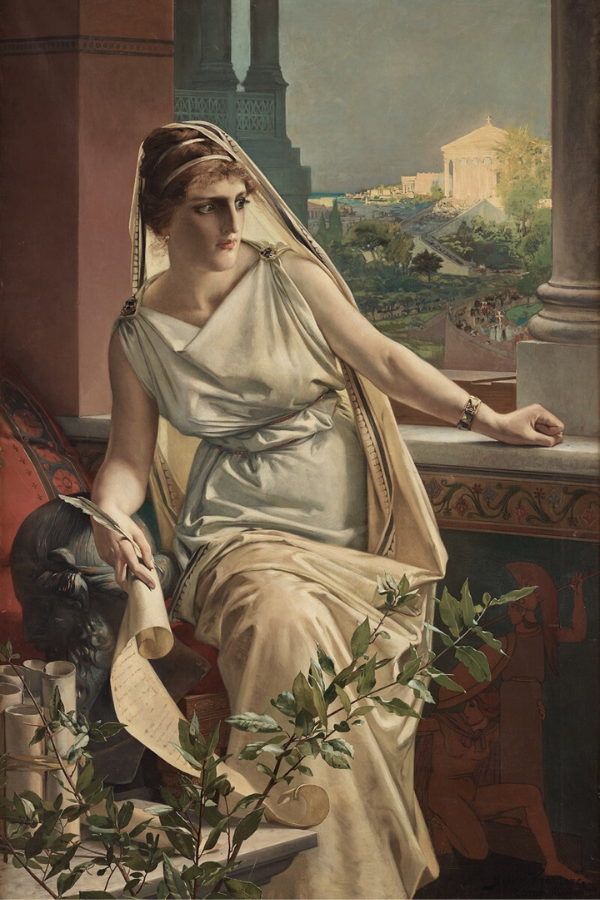

The Mathematical Contributions of Hellenistic Neoplatonist Philosopher Hypatia
Summary
This article delves into the remarkable life and enduring legacy of Hypatia of Alexandria, a pioneering Hellenistic Neoplatonist philosopher, mathematician, and astronomer. We explore her intellectual contributions within the vibrant contexts of the Hellenistic period, Neoplatonism, and the scholarly hub of Alexandria. Hypatia’s innovative work in mathematics and philosophy, her role as a revered educator, and her tragic murder, which signaled a pivotal moment in ancient scholarly tradition, are examined. Additionally, we tackle the challenges of studying Hypatia’s work due to the scarcity of primary sources and the task of separating historical facts from myths. The article highlights Hypatia’s influence on subsequent generations and her symbolic significance as a beacon of wisdom, learning, and female empowerment in STEM throughout history, underscoring the importance of recontextualizing women’s contributions in these fields.
Reflection Questions
- Hypatia’s story is a poignant reminder of the challenges faced by women in academia and intellectual pursuits, both historically and in contemporary times. How can her legacy inspire current and future generations of women to pursue their intellectual and scientific passions?
- Considering the scarcity of primary sources on Hypatia’s work and the challenge of separating myth from historical fact, what does this tell us about the preservation of women’s contributions to science and knowledge throughout history?
- Hypatia’s role in the Alexandrian scholarly community was significant. How can we, as a society, work to ensure that the contributions of women in science, technology, engineering, mathematics, and philosophy are recognized and valued?
- Given the challenges in studying Hypatia’s work, including the issue of recontextualizing women’s contributions in history, how important is it to critically evaluate historical narratives and ensure diverse perspectives are included and acknowledged?
Journal Prompt
Hypatia’s influence as an educator and mentor was profound, shaping the minds of future scholars and thinkers. Reflect on the mentors who have impacted your life and career. What qualities did they possess that you found most beneficial? Consider how you can embody these qualities to mentor and uplift others in your community or field. Write about your experiences with mentorship, both as a mentor and a mentee, and the significance of these relationships in personal and professional growth.
Hypatia was a Hellenistic Neoplatonist philosopher, astronomer, and mathematician who lived in Alexandria, Egypt, during the late 4th and early 5th centuries CE. She is one of the first female mathematicians whose life is reasonably well recorded. Hypatia transcended the societal limitations of her era to etch her name into the annals of intellectual history. She was known for her work in mathematics and astronomy, her development of astronomical instruments, and her role as a teacher and lecturer on philosophical topics. Her work and leadership in the Neoplatonic school in Alexandria made her a respected and influential figure in philosophy and science. Unfortunately, Hypatia’s life ended tragically; she was murdered by a Christian mob in 415 CE, an event often cited as symbolic of the decline of classical pagan culture and the rise of Christianity in the Roman Empire. Of course, we must note that many Neoplatonists later became Christians, and the political tensions in Alexandria that led to her killing were complex. Let’s learn more about her contributions to mathematical analysis, philosophy, astronomy, and culture in Ancient Egypt.
Historical Context for Hypatia’s Life and Work
The Hellenistic period was a time of unprecedented intellectual ferment and cultural exchange, following the conquests of Alexander the Great. This era saw the fusion of Greek culture with that of the Near East, Egypt, and Central Asia, creating a vibrant melting pot of ideas and philosophies.
Scholars, artists, and thinkers from diverse backgrounds converged, driven by an insatiable curiosity and the pursuit of knowledge. This period was marked by significant advances in science, philosophy, and the arts, as the boundaries of the known world expanded, both literally and intellectually. The Hellenistic period thus stands as a testament to the power of cultural synthesis and the endless human quest for understanding.
Understanding Neoplatonism
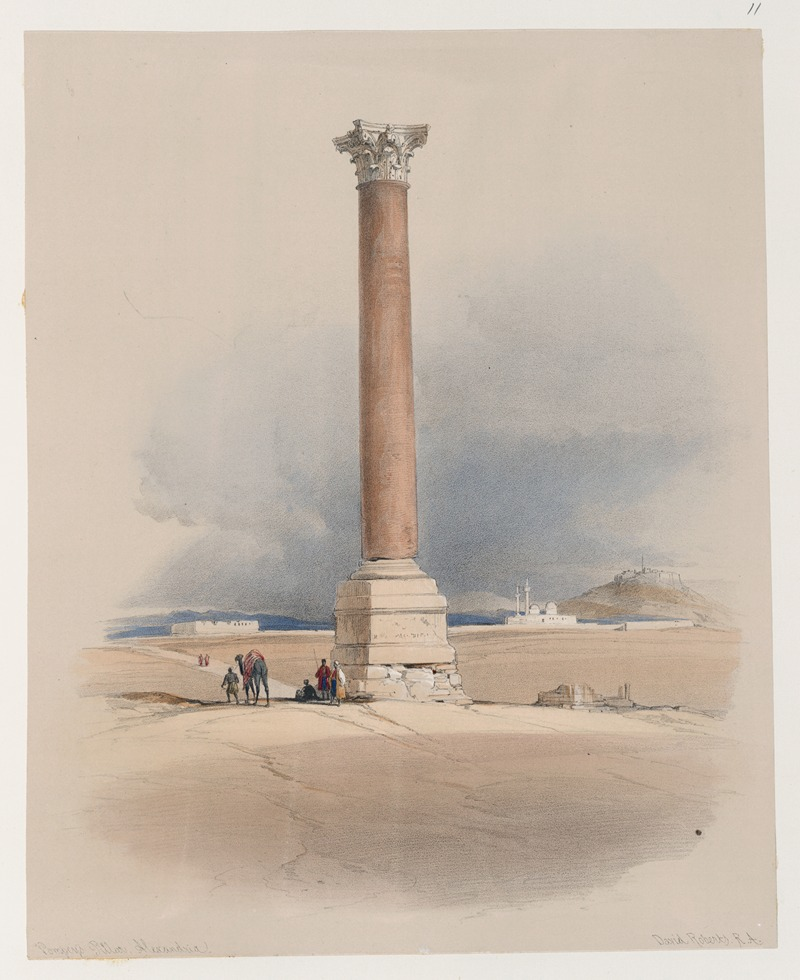

Against this backdrop of cultural and intellectual dynamism, Neoplatonism emerged. Building on Plato’s teachings, Neoplatonism offered a rich, intricate vision of the universe, where everything emanates from the One, an ultimate principle of reality and goodness. This philosophical framework provided a unifying cosmic perspective, blending metaphysics with ethics, and appealing to those seeking a deeper understanding of the world and their place within it. Neoplatonism’s ascendancy reflected the era’s hunger for a philosophy that could encompass the complexities of the cosmos and the human soul, resonating deeply with thinkers and seekers alike.
Hypatia’s Home: Alexandria as the Center of Neoplatonism
Alexandria was at the center of this fervor for knowledge. Founded by Alexander the Great and home to the legendary Library of Alexandria, this city became the epicenter of Hellenistic culture and learning. Alexandria’s scholars, libraries, and academic institutions attracted the brightest minds from across the Mediterranean and beyond, fostering an environment of unparalleled academic freedom and inquiry.
The city’s commitment to scholarship across disciplines—ranging from mathematics and astronomy to philosophy and literature—made it a crucible for innovation and a bridge between ancient wisdom and new discoveries. Alexandria’s legacy as a center of learning and scholarship continues to inspire those who value knowledge, creativity, and intellectual exploration.
Fuel your creative fire & be a part of a supportive community that values how you love to live.
subscribe to our newsletter
*please check your Spam folder for the latest DesignDash Magazine issue immediately after subscription


Hypatia’s Early Life and Background
Hypatia’s early life and education are tales of inspiration, embodying the spirit of inquiry and the relentless pursuit of knowledge. Born in Alexandria, she was immersed in an environment that celebrated intellect and wisdom, guided by her father Theon, a renowned mathematician and philosopher.
The influence of her father, Theon of Alexandria, on Hypatia’s intellectual development cannot be understated. As a distinguished mathematician and philosopher in his own right, Theon taught Hypatia. He offered her a rigorous education that laid the foundation for her future achievements. His mentorship exemplifies the transmission of knowledge and values within the Neoplatonic tradition, emphasizing the cultivation of the intellect and the character. This nurturing environment fostered Hypatia’s growth into a scholar who would not only excel in her own contributions to mathematics and philosophy but also inspire generations to come with her example of wisdom, virtue, and intellectual curiosity.
Today, Hypatia’s story is a testament to the transformative impact of an enriching educational foundation, paving the way for her to challenge and redefine the boundaries of knowledge.
Her Role in the Alexandrian Scholarly Community
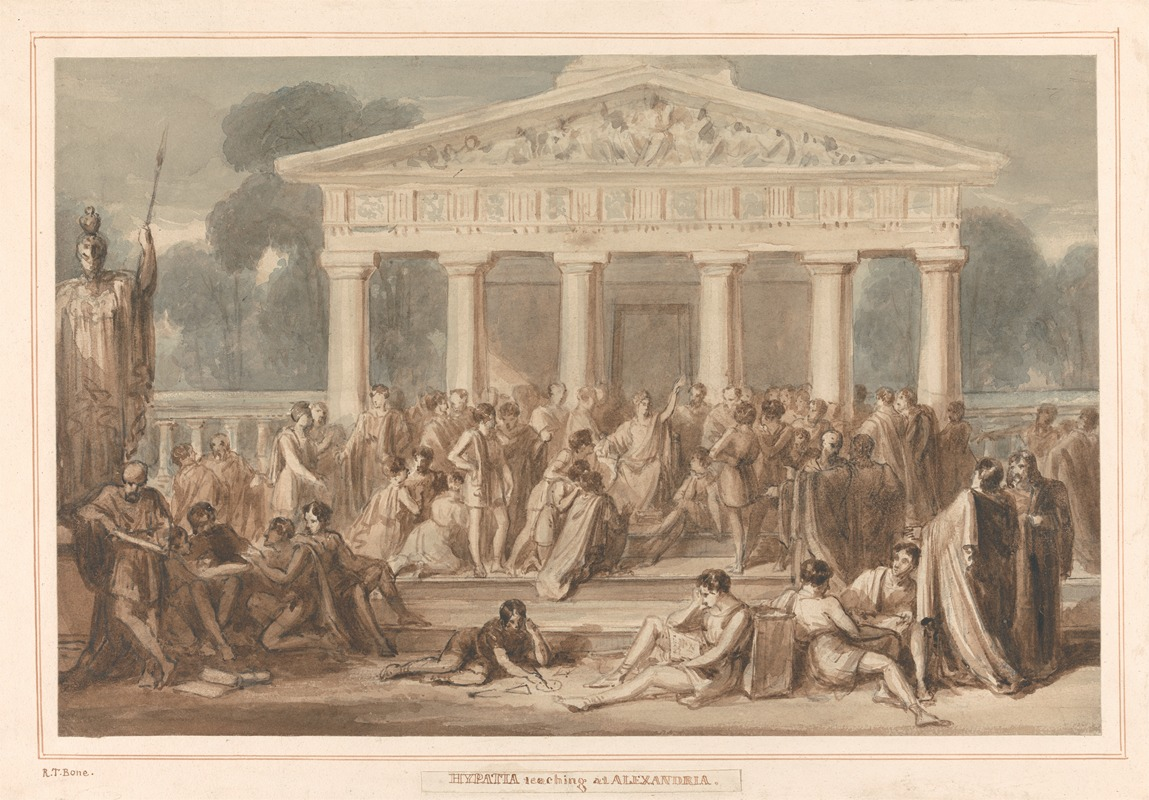

As a central figure in the Alexandrian scholarly community, Hypatia’s role transcended the conventional boundaries of academia. She was not only a revered mathematician and philosopher but also an esteemed educator, whose lectures attracted a diverse audience, from young students to seasoned scholars. Her ability to weave complex philosophical concepts with the precision of mathematical reasoning made her teachings compelling and accessible.
Hypatia’s influence extended beyond the walls of her classroom; she fostered a culture of intellectual curiosity and open discourse, contributing to Alexandria’s reputation as a hub of learning. Her leadership and mentorship inspired a generation of thinkers, underscoring her pivotal role in the vibrancy of the Alexandrian scholarly community.
Hypatia’s Contributions to Mathematics and Philosophy
Hypatia’s contributions to mathematics and philosophy were groundbreaking, blending analytical rigor with metaphysical exploration. In mathematics, she delved into the intricacies of geometry and algebra, making strides that would influence future scholars. Her work on conic sections, for example, laid foundational stones for the development of more complex mathematical theories. In philosophy, Hypatia was a torchbearer of Neoplatonism, advocating for a worldview that sought unity and coherence in the universe’s diversity.
Her philosophical teachings, emphasizing the pursuit of truth and the cultivation of virtue, resonated with a wide audience, bridging the gap between abstract thought and practical ethics. Hypatia’s legacy in mathematics and philosophy endures, a beacon for those who dare to think deeply and tread the uncharted territories of knowledge.
A Closer Look at Her Mathematical Contributions
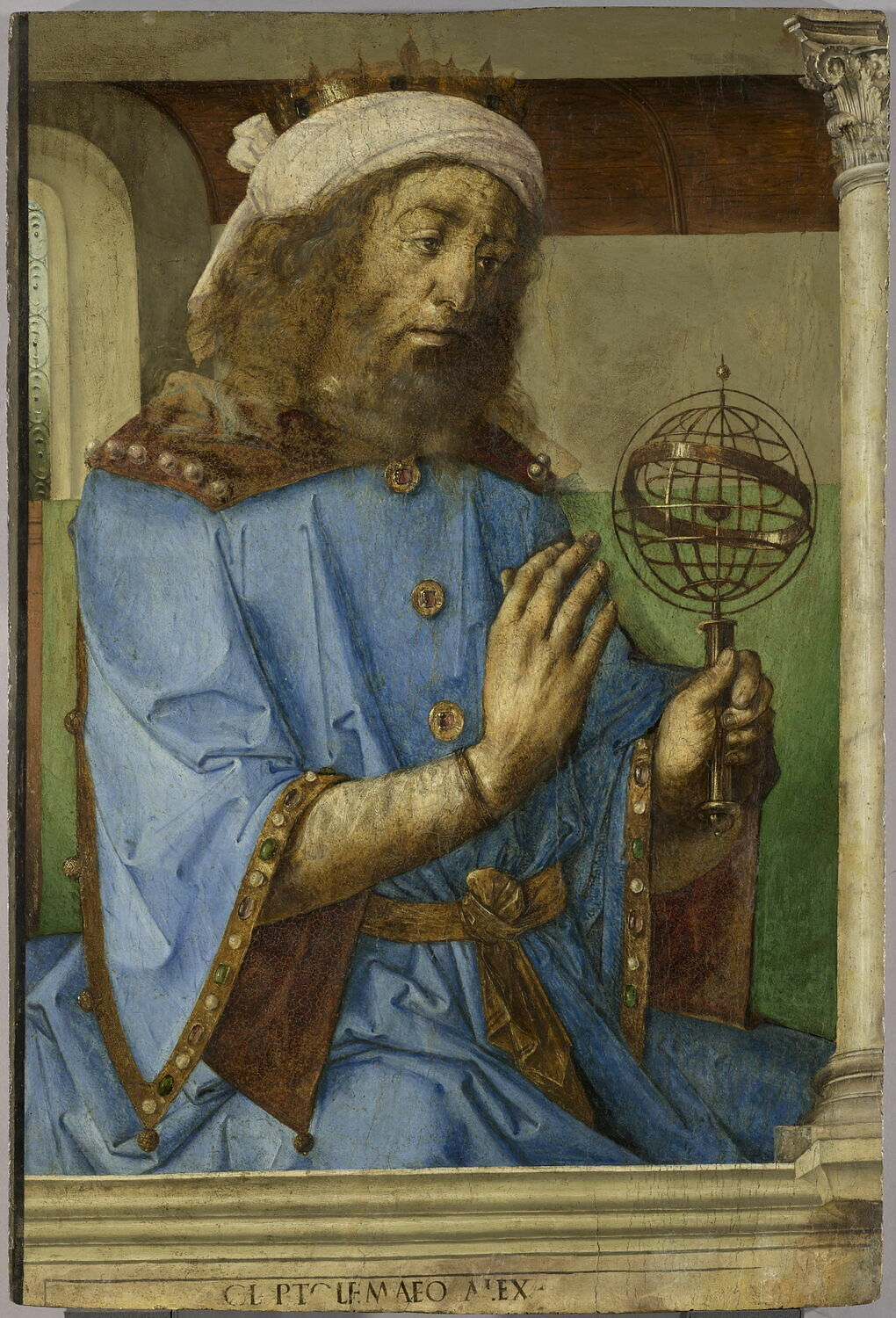

Hypatia’s oeuvre, though much of it not extant, reflects a formidable intellect engaged in the rigorous analysis of foundational mathematical texts and the development of practical scientific instruments. Her commentary on Diophantus’s “Arithmetica” not only elucidated complex algebraic concepts but also expanded on them, showcasing her ability to both interpret and innovate within the mathematical discourse.
Similarly, her examination of Ptolemy’s “Almagest” offered insightful perspectives on astronomical calculations, cementing her status as a scholar of remarkable breadth and depth. Beyond the realm of pure mathematics, Hypatia’s contributions to the practical sciences—most notably in the refinement of the astrolabe and hydroscope—demonstrate her commitment to applying mathematical principles to understand and interact with the natural world. These endeavors highlight Hypatia’s unique role as both a guardian of Hellenistic mathematical wisdom and a pioneer in the application of mathematical thought to practical problems.
Hypatia’s approach to mathematics was characterized by a blend of rigorous analysis, creative innovation, and practical application. She engaged deeply with the works of her predecessors, not merely preserving their knowledge but also critically examining and extending their theories. Her methodological rigor was matched by a pedagogical skill that made complex ideas accessible and compelling to her students and contemporaries.
Hypatia’s work exemplifies the power of mathematics not only as an abstract field of inquiry but also as a tool for understanding and navigating the physical world. Her ability to traverse these domains with ease and to foster a culture of intellectual curiosity and rigorous debate set a benchmark for mathematical exploration and education.
Neoplatonism and Hypatia’s Philosophical Views
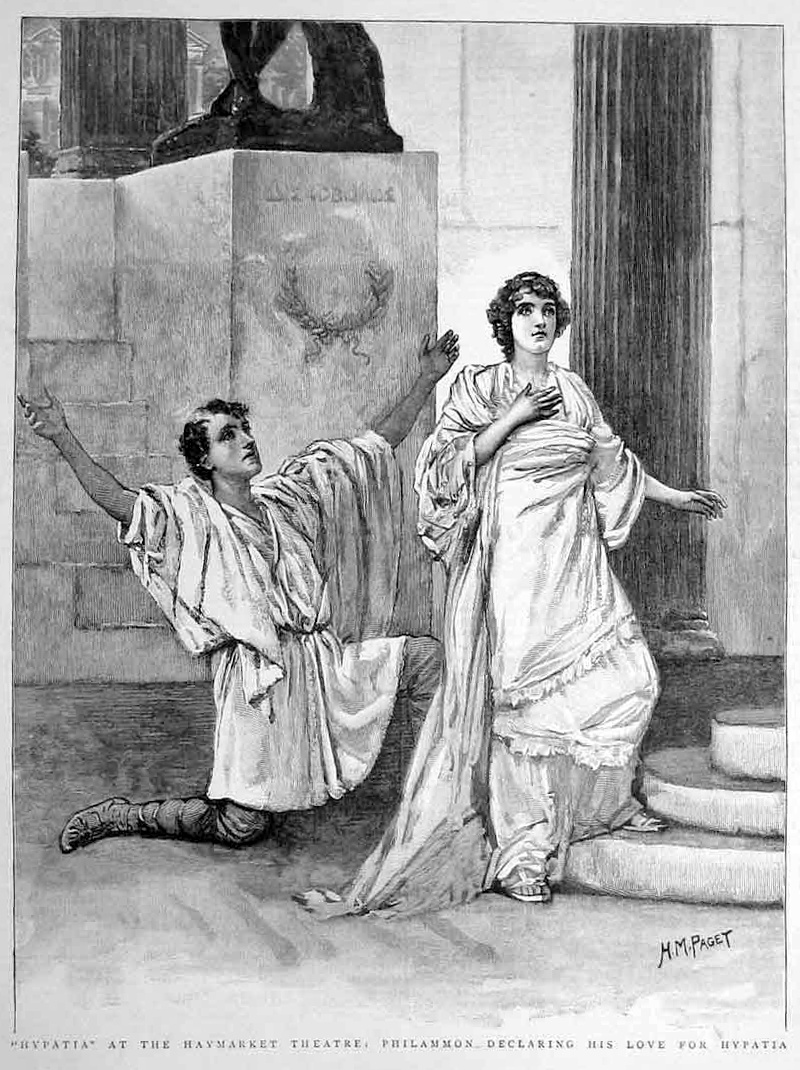

Neoplatonism, a philosophical system that flourished in the Hellenistic world, represents a profound synthesis of Platonic thought, orienting towards the exploration of the nature of reality, the soul, and the cosmos. It posits a single, transcendent source of all existence from which emanates a hierarchical cosmos, culminating in the material world.
Its ideas emphasize the unity of all things and the journey of the soul back to a divine origin through contemplation, virtue, and the pursuit of wisdom. Neoplatonism, with its deep metaphysical questions and emphasis on intellectual and spiritual refinement, provides a compelling worldview that continues to captivate and inspire, offering a path to understanding the intricate connections between the seen and the unseen.
Hypatia’s Involvement in Neoplatonism
Hypatia’s work and teachings are a testament to the living tradition of Neoplatonism, reflecting its ideals of the pursuit of wisdom and the harmonious integration of thought and existence. Her philosophical stance was not just an academic posture but a lived experience, embodying the Neoplatonic quest for unity with the divine through the tools of reason and contemplation. Her dedication to the life of the mind, coupled with her active engagement in the educational and civic life of Alexandria, exemplifies the Neoplatonic ideal of philosopher as both teacher and practitioner, guiding others toward the light of knowledge and understanding.
In her teachings, Hypatia seamlessly wove together mathematics and philosophy, illustrating the Neoplatonic belief in the harmony of the universe and the mathematical order underlying it. She championed the idea that mathematical studies were not mere intellectual exercises but pathways to understanding the abstract principles governing the cosmos. This integration of disciplines showcases Hypatia’s innovative approach to education and knowledge, encouraging a holistic view of learning where abstract thought complements empirical inquiry, leading to a fuller comprehension of the world and our place within it.
Hypatia’s Death and its Aftermath
The tragic murder of Hypatia marked a turning point for Alexandria and its scholarly community, casting a long shadow over an era of unparalleled intellectual achievement. This event not only signified the loss of a brilliant mind but also symbolized the end of a period characterized by the flourishing of free thought and scholarly inquiry in Alexandria. The impact resonated deeply within the community, signaling a shift in the cultural and intellectual climate of the city.
Yet, from this profound loss emerged a renewed determination to preserve and protect the legacy of learning and wisdom that Hypatia epitomized. Her death, while a moment of darkness, catalyzed a lasting reverence for knowledge and the spirit of inquiry, underscoring the resilience of the scholarly community in the face of adversity.
Her Legacy and Influence
Hypatia’s influence extends far beyond her own time, touching subsequent generations of mathematicians and philosophers. Her life and work have served as a beacon of inspiration, illustrating the profound impact of intellectual rigor, dedication, and the courage to explore uncharted territories of thought. Mathematicians and philosophers, drawn to her story and contributions, have looked to Hypatia as a model of scholarly excellence and integrity.
Her legacy is reflected in the enduring quest for knowledge and understanding, encouraging individuals to pursue truth with both passion and perseverance. Hypatia’s spirit lives on, fueling the aspirations of those who seek to push the boundaries of what is known and to explore the depths of the mathematical and philosophical landscapes.
She represents not only the intellectual achievements of the ancient world but also the enduring importance of fostering a culture of learning and inquiry. As a figure who transcended the limitations of her time, Hypatia inspires all who value knowledge and the transformative potential of education. Her legacy serves of mentorship as a reminder of the role that wisdom and learning play in shaping a more enlightened and understanding world.
Through her life and work, Hypatia continues to embody the ideals of intellectual exploration and the never-ending pursuit of knowledge, making her a timeless symbol for those who aspire to think deeply and contribute meaningfully to the tapestry of human understanding.
Final Thoughts: Challenges in Studying Her Work and That of Other Women Lost to History
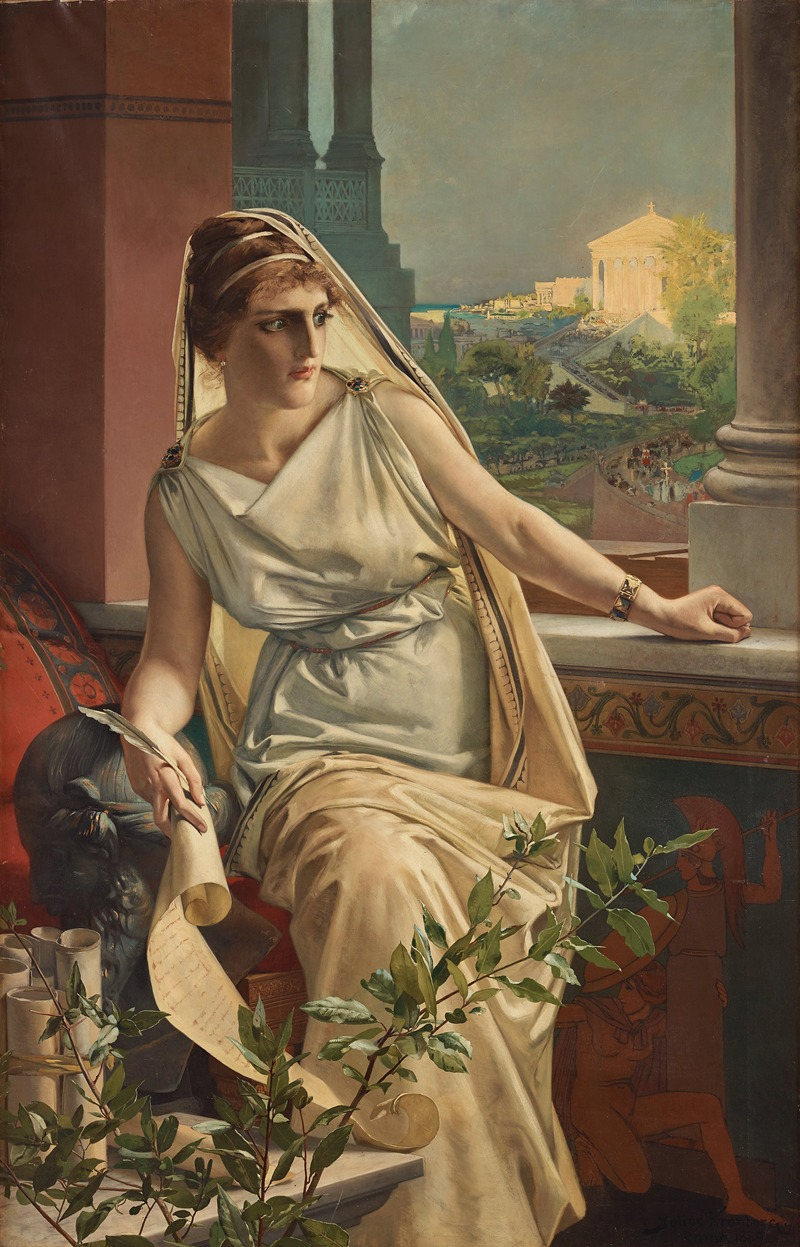

Delving into the study of Hypatia’s remarkable legacy, we confront the challenge of the scarcity of primary sources and an over-reliance on secondary accounts. Much of Hypatia’s own writings have been lost to time, leaving us to piece together her life and contributions through the writings of others who lived during or shortly after her time. This detective work requires a discerning eye and a commitment to scholarly rigor, as we sift through historical documents, attempting to capture the essence of her intellectual spirit and achievements. Despite these challenges, the quest to understand Hypatia’s work continues to inspire, a testament to the enduring fascination with her life and legacy.
Separating myth from historical fact presents a nuanced challenge in the study of Hypatia’s life and work. Over the centuries, Hypatia has become a figure of legend, with various narratives amplifying her story in ways that sometimes cloud the historical reality. This blending of fact and fiction requires a careful, critical approach to distinguish the genuine contributions of Hypatia from the mythic elements that have accrued around her persona. Engaging with this challenge not only enriches our understanding of Hypatia but also illuminates the processes by which historical figures are remembered and immortalized.
In contemporary discourse, interpretations and misinterpretations of Hypatia’s contributions and those of other women philosophers often reflect the complexities of translating ancient wisdom into modern contexts. Scholars and enthusiasts alike grapple with understanding her work within the framework of her time while assessing its relevance to current debates in science, philosophy, and gender studies. This dynamic conversation, though sometimes fraught with misinterpretations, underscores the vitality of Hypatia’s legacy as a subject of ongoing exploration and debate. It invites us to engage critically and creatively with her story, encouraging a deeper appreciation for the layers of meaning that her life and work continue to generate in our quest for knowledge and understanding.
Design Dash
Join us in designing a life you love.
-
What is Tax-Loss Harvesting, Is It Legal, and Does It Build Wealth?
A legal and simple strategy, tax-loss harvesting helps you offset capital gains and grow your wealth by reducing your tax bill.
-
DesignDash Guide: Create the Ultimate Fall Capsule Wardrobe
Build a fall capsule wardrobe to streamline your style, save time, and support sustainability with versatile, high-quality pieces.
-
How to Support a Partner Who is Making a Major Career Change
Wondering how to be a supportive partner during periods of transition? Here’s how to care for your partner (and yourself) during this time.
-
How Dollar-Cost Averaging Can Help You Navigate Market Volatility
Learn how dollar-cost averaging (DCA) can help you grow your wealth with consistency and ease, even during market volatility.
-
Fall Meal Prep: Maximizing Space for Soups, Stews, and Bakes
From decluttering your pantry to creating a cozy prep station you’ll actually enjoy, here’s how to organize your kitchen for fall meal prep.
-
Looking to the Future? Maybe It’s Time to Refresh Your Firm’s Brand
Your interior design business shouldn’t have to rebrand every time you open a new studio or add a new service, but it might need a brand refresh.








